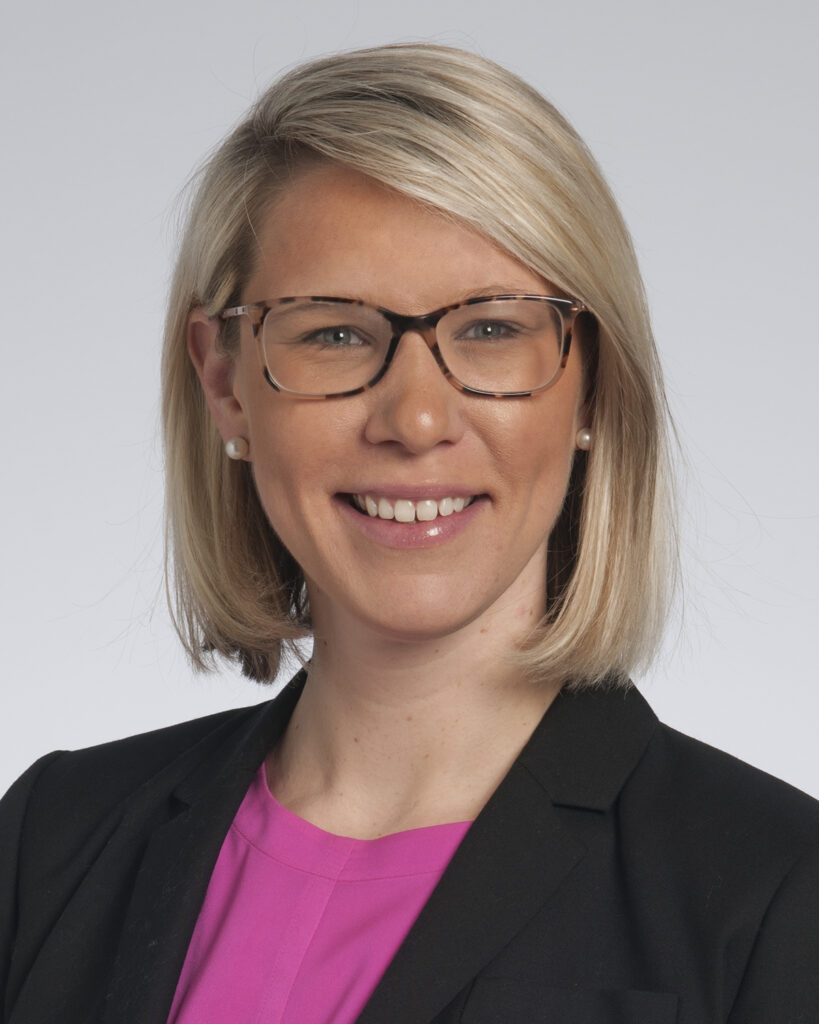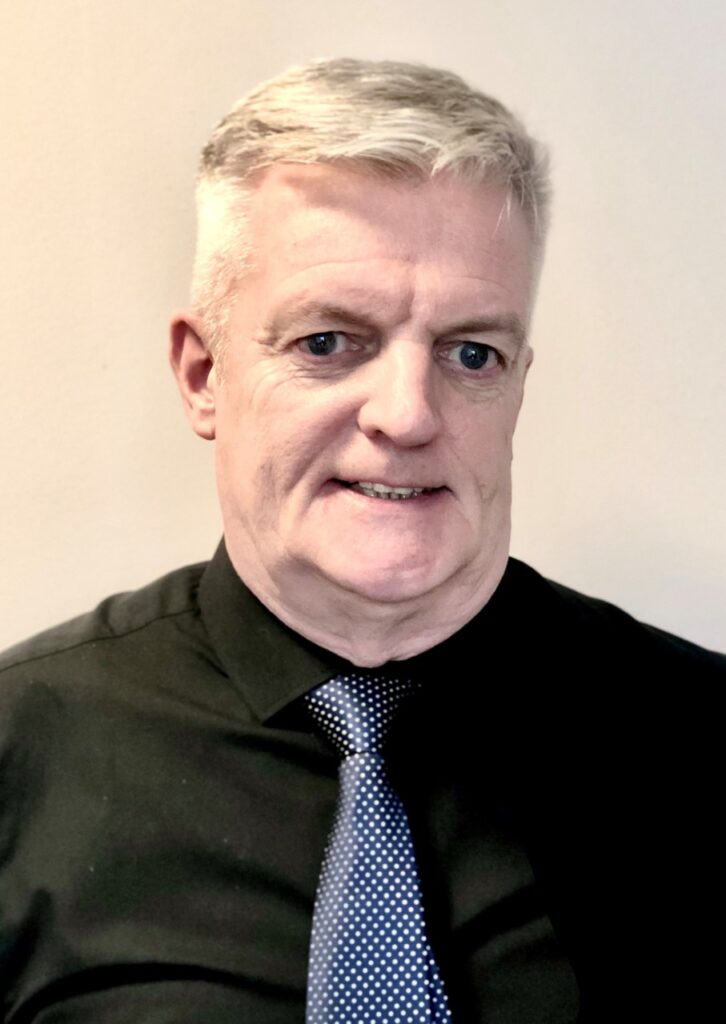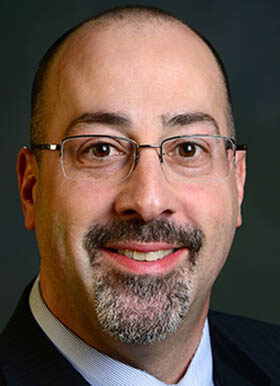Interviewed by Jessica Rowe, MA, MS, CCRP, CIP, SOCRA Past President
I had the honor and privilege of interviewing one of my personal inspirations, Abby Statler, this year’s winner of the President’s Award. Her professional journey, insights, and unwavering dedication to the field of clinical research is both inspiring and moving. Here’s a glimpse into our heartfelt conversation.
Inspiration Behind the Journey
When asked what inspired her to pursue a career in clinical research, Abby’s response was rooted in a deep desire to make a difference. Her inspiration has always been about more than the technicalities of the job; it’s about the people, innovation, and advancing public health.
Can you share a specific story or moment that solidified your decision?
In my role at the Cleveland Clinic, I was exposed to groundbreaking research, brilliant minds, and inspiring participants. It was there that I realized this profession was far more than data collection, regulatory submissions, and product accountability. It’s about people. It’s about innovation. It’s about advancing public health. This realization resonated deeply with me and continues to drive my professional motivation.
Were there any mentors or role models that particularly influenced you?
Yes, two individuals stand out. Dr. David Mkaya Mwamburi, a thought-leader in HIV research and a champion of global public health initiatives, profoundly influenced me early in my career at United BioSource Corporation in Boston, where we worked together. Mkaya recognized my energy, helped me find my professional footing, and inspired me to ask questions, push boundaries, and contribute to scientific literature. Similarly, Dr. Mikkael Sekeres, an internationally recognized figure in hematologic malignancies, an accomplished author, and a profoundly talented researcher, has been a pivotal mentor. I met Mikkael while at Cleveland Clinic and was overwhelmed by his practice-changing work. The synergy of our curious minds advanced my master’s work into research publications, inspired my PhD, and ultimately shifted the trajectory of my career.
First Steps in Clinical Research
What was your first experience in clinical research like?
My first job was in biotech consulting, where I primarily supported systematic literature reviews and meta-analysis. There, I collected and analyzed data from scientific literature and saw the power of clinical trial publications. This experience piqued my interest in the conduct of trials, ultimately leading me to work in a clinical setting. When I joined The Cleveland Clinic as a QA Coordinator, it was invigorating, challenging, and thought-provoking. I knew I had made the right move.
What were your initial expectations, and how did reality differ?
Initially, I took the regulations and internationally accepted guidance documents quite literally, approaching challenging compliance issues with a level of rigidity that was not realistic. Over time, I learned that maintaining a sense of pragmatic flexibility was key; balancing the ethical principles of beneficence, autonomy, and justice was more important than strict compliance.
How did this experience shape your future approach to clinical research?
The early years of my career solidified my desire to think independently and consider how I could personally contribute to the clinical research profession. This inspired my involvement with SOCRA and catalyzed my desire to pursue a PhD.
Driving Passion and Fulfillment
What drives your passion for the industry?
The patients. Working for Academic Medical Centers such as The Cleveland Clinic and Dartmouth Health has exposed me to research ecosystems that emphasize patient-centric models. The essence of my passion is tied to advancing human health. Contributing to a profession that aims to produce societal benefits is profoundly important to me, particularly as a mother of young children. I hope the medicinal advances of today impact their future.
Are there particular aspects of clinical research that you find most fulfilling?
The opportunities I have to educate the clinical research community are the most valuable and fulfilling. I see the magic in those who are open to pushing their minds and stretching their perspectives – inspiring their development is a gift.
Career Evolution
How has your career evolved over the years?
The shift I’ve made from academia to industry has made a profound impact on my professional perspective. I am now able to navigate clinical trial complexities from different vantage points – seeing beyond the traditional investigator and sponsor roles. This has elevated my critical thinking skills and supported my growth as a strategic enabler. Joining AVEO Oncology has enhanced the dimensions of my professional space; the organization’s values are lived, integrity is upheld, and patients are prioritized. This pivot pushed me to trust my instincts, open my mind, and believe I could make a difference.
Rewarding Achievements and SOCRA’s Role
Can you share a specific project or achievement that stands out to you?
The publications related to modernizing clinical trial eligibility criteria, for which I am the first author, are critical achievements. This work continues to inform progress in clinical trial design, supporting the development of criteria that will enhance access to clinical trials.
How has your involvement in SOCRA shaped your career?
The culture cultivated by SOCRA helped me find the confidence to pursue my passion. The members of this organization genuinely aim to support growth and development, fostering a thought-provoking and accepting community. The people of this organization have supported my professional progression, from encouraging poster presentations to supporting my candidacy for SOCRA President – each interaction is founded in authenticity.
Receiving the President’s Award
What does receiving this award mean to you?
I am incredibly honored. But this award is not about me. It is about celebrating the power of the clinical research profession, motivating others to see beyond their perceived barriers, step into their light, and believe their professional contributions are truly impactful.
Advice for the Next Generation
If you could give one piece of advice to the next generation of CRPs, what would it be?
Abby Statler’s journey is a testament to the power of dedication, mentorship, and the unwavering belief in the impact of one’s work. Her story not only inspires but also highlights the significant influence that clinical research professionals have on advancing human health. I’m not sure if Abby fully realizes the profound impact she has had on so many people in our industry—not just as a mentor and colleague, but as a leader and cherished friend. Her unwavering dedication, guidance, and genuine care have touched countless lives, inspiring us all to reach our highest potential.











